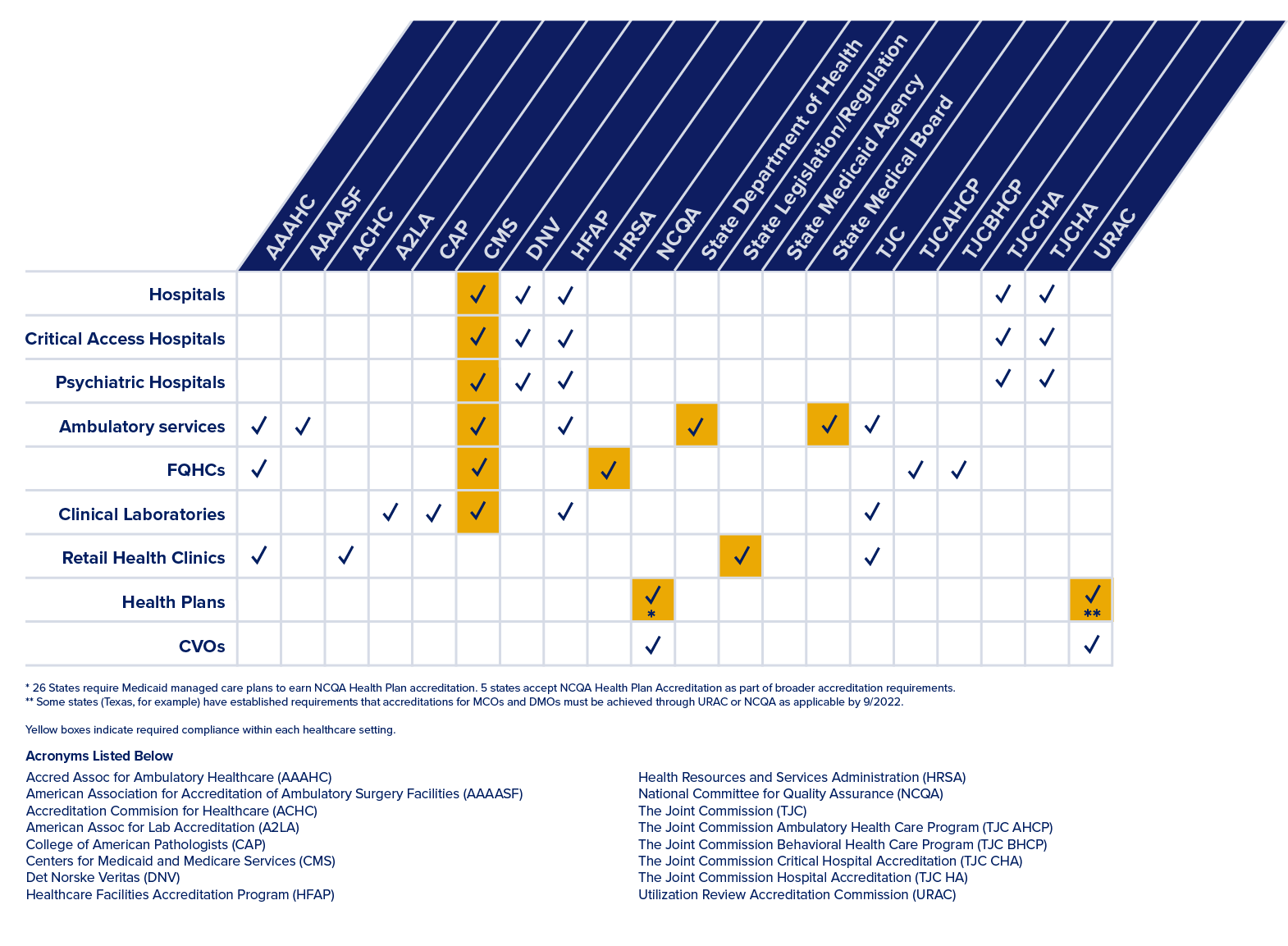
Regulatory, Accreditation, and Certification Insight for Your Healthcare Organization
The world of compliance, regulation, accreditation, and certification is a complicated one, as the healthcare industry is kept in check by a variety of different organizations. Healthcare rules, regulations, and standards are developed, implemented, and enforced by both Federal and State regulatory agencies, as well as by private accreditation and certification organizations.
Federal and State organizations oversee and enforce required compliance within most healthcare settings. Whereas private accreditation and certification organizations provide voluntary accreditation and/or certification of quality standards as additional oversight to Federal/State agencies—that’s their main difference. One is mandatory, the other is voluntary.
The main Federal and State agencies are:
- Centers for Medicaid and Medicare Services (CMS): Part of the Department of Health and Human Services (HHS) serving most healthcare settings
- Health Resources and Services Administration (HRSA): Serving Federally Qualified Health Centers (FQHCs)
- State Agencies (like the State’s Departments of Health): License or certify healthcare facilities on behalf of the CMS using State and Federal regulations
The main voluntary Accreditation and Certification Organizations are:
- The Joint Commission (TJC): Evaluate healthcare organizations to provide the safest healthcare outcomes across all settings
- National Committee for Quality Assurance (NCQA): Use measurement, transparency, and accountability to highlight top performers in the medical industry
- Det Norske Veritas (DNV): International and accredited registrar and classification agency
- Healthcare Facilities Accreditation Program (HFAP): Help healthcare organizations maintain standards in patient care

Aside from the main accreditation and certification organizations mentioned above, there are many others specific to certain industries, like ambulatory services, for example. The matrix below outlines the requirements each healthcare setting has in regards to federal and state agencies, and outlines the voluntary options available. Yellow boxes indicate required compliance within each healthcare setting.
Clearly, the world of compliance, regulation, accreditation, and certification is complicated. With so many varying requirements, it’s easy to lose track or get overwhelmed if you don’t have the right tools in place to assist you. CredentialStream has everything you need to easily track and comply regulatory requirements - both mandatory and voluntary. Contact us today to see how CredentialStream can save you time while reducing inaccuracies and compliance issues.
